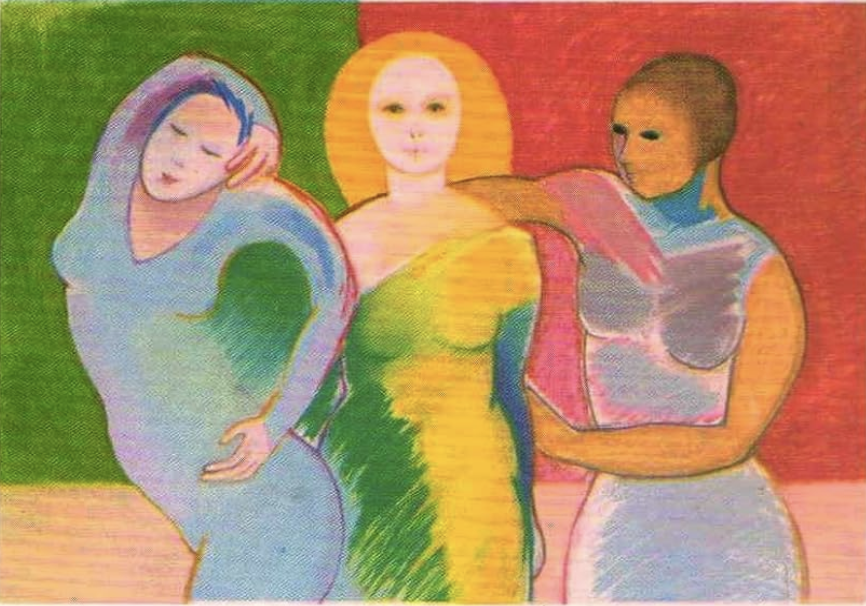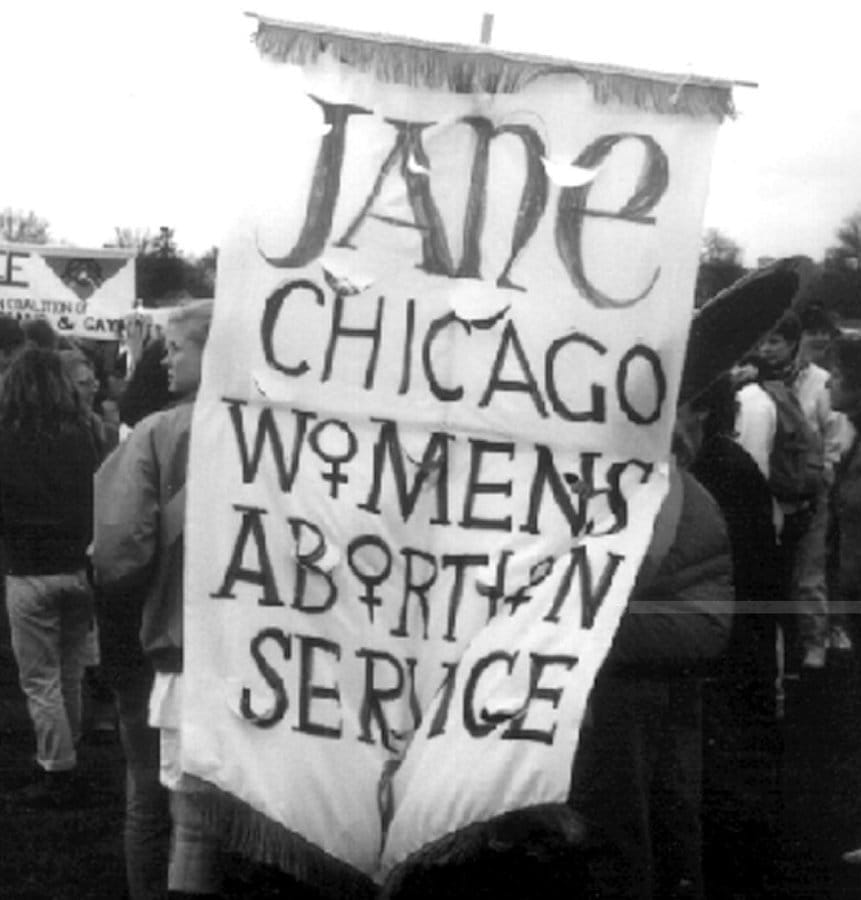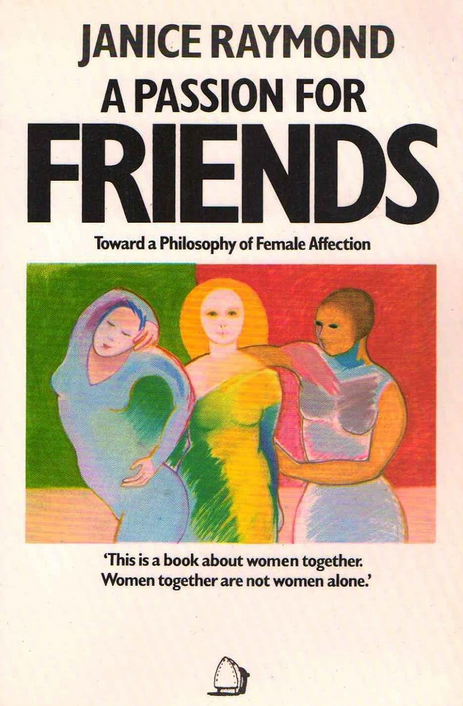
What The Heck Is Gyn/Affection?
Let's learn together
-Karen, Women's Studies Online
Radical feminist Janice G. Raymond coined the term "gyn/affection" to describe the powerful reality and potential of friendship between women. Raymond describes gyn/affection as "...a loving relationship between two or more women...a freely chosen bond which, when chosen, involves certain reciprocal assurances based on honor, loyalty, and affection" (1986, p. 9).
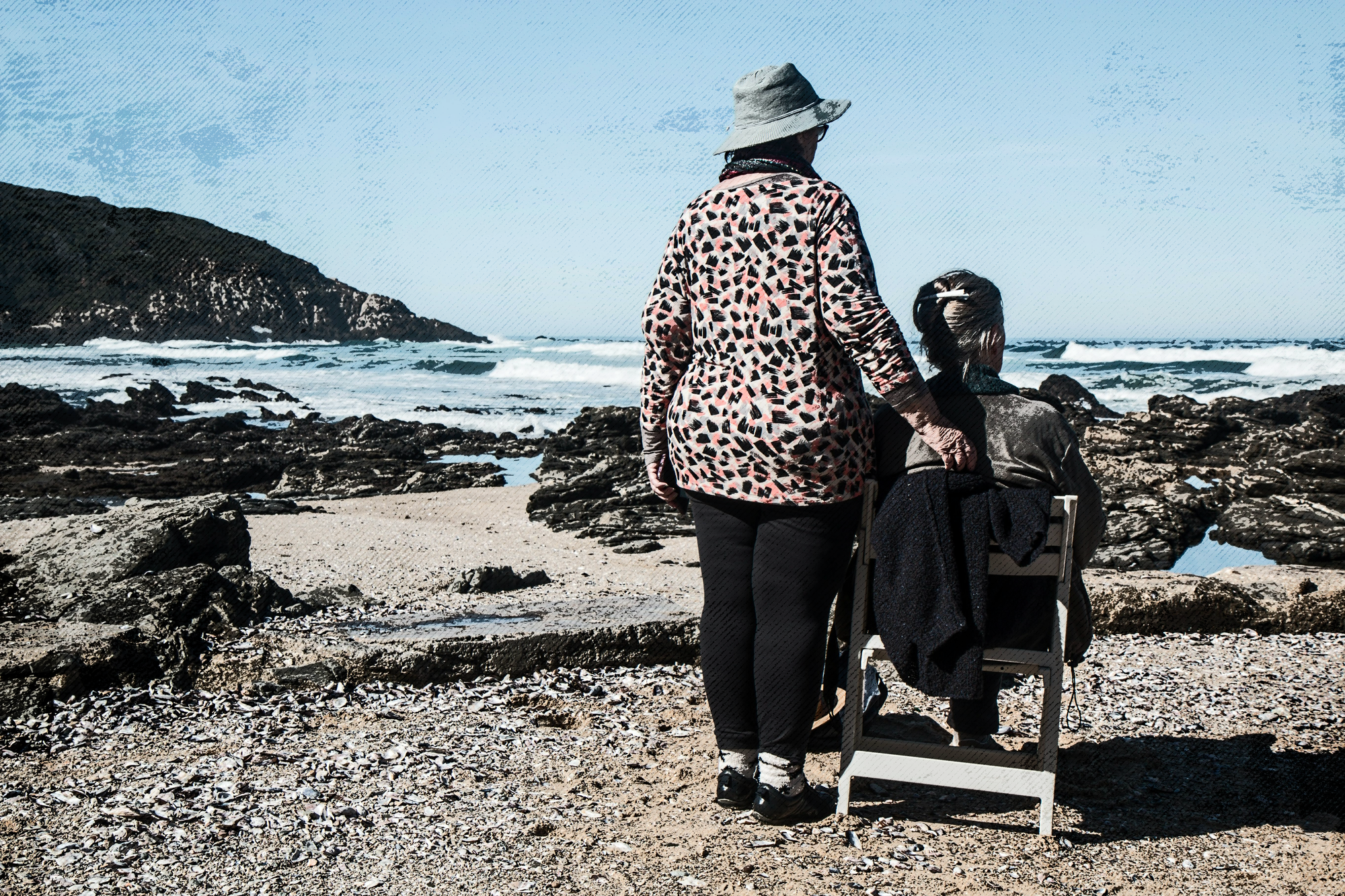
"A genuine friendship goes beyond the world of Self’s relations with other Selves to the society in which the female Self is allowed to grow. Thus, the basic meaning of Gyn/affection is that women affect, move, stir, and arouse each other to full power" (Raymond, 1986 p. 9).
A Passion For Friends
In her book, A Passion for Friends: Toward a Philosophy of Female Affection, Raymond discusses different kinds of female friendship, such as the communal lives of nuns and other religious orders. She writes about the Beguines – religious women who gathered themselves into communal settlements throughout Europe. The Beguines held a deep commitment to each other and their sisterhood - they cared for each other, taught each other, handed down property to each other, shared resources, and generally looked to each other, not the church, to take care of their needs. As Raymond writes,
"The Beguine movement differed from all earlier female religious groups in that 'it was basically a women's movement, not simply a feminine appendix to a movement which owed its impetus, direction and main support to men' (1986, p. 76).
Raymond also writes about the Chinese marriage resisters during the early 19th and 20th centuries who forged deep emotional, economic, physical, and spiritual friendships and networks in rural China. These women refused to marry, or if ceremonially married refused to live with their husbands. Instead, they chose an alternative to patriarchy by living and creating lives with each other. Many lived in vegetarian halls or spinsters' houses and created everlasting friendships where they cared for each other and helped each other. For many, their pledge to not marry was profoundly political, often spiritual, and connected to their larger goal of freedom and autonomy. As Raymond articulates,
"The resisters were adamant about not participating in the marriage system...that they did not work for marriage reform, but instead worked for more woman-defined structures in which women could work, save money, retire, and have their own culture, is a remarkable proof of their movement operating outside of the parameters of hetero-relations" (Raymond, 1986, p. 141).
Such herstory is inspiring and a testament to the power of women to come together in friendship, love, and possibility, and through their gyn/affectional connections to create a freer reality and world for themselves and their sisters.
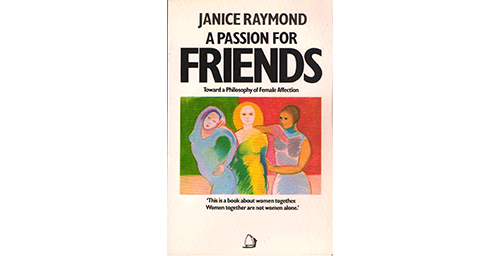
Indigenous Gyn/Affection
In her book, Not Sacred, Not Squaws: Indigenous Feminism Redefined, Cherry Smiley (who is a founder of WMST) provides herstorical examples of sisterhood among Indigenous women, such as women continuing to live in their home communities with their families and other women when married to a man from outside their territory (2023, p. 60-61). In this example, Indigenous women kept their ties to their families and to other women in their communities, a practice that continues to happen today. There are different reasons for why women do things this way, but one of the reasons is the importance of relationships between and among Indigenous women.
In some Indigenous cultures, for example, members of the same clan will refer to others in that clan with familial terms: Female elders are grandmothers, middle-aged women are mothers, same-age women are sisters, and so on; and not only are other women referred to in these terms, but women relate to each other as family. This demonstrates a gyn/affective way of viewing relationships with other women as sisterhood, whether blood-related or not.
A second example can be seen in the relationships many Indigenous women and girls have with their female cousins. In many cases, a cousin is a first friend, a best friend, akin to a sister - we can see this in Chris Stark's incredible novel, Carnival Lights, where the two main characters are cousins. While these types of relationships are not necessarily the case for all Indigenous women, the importance of relationships, including relationships among women, is generally a foundational part of Indigenous cultures.
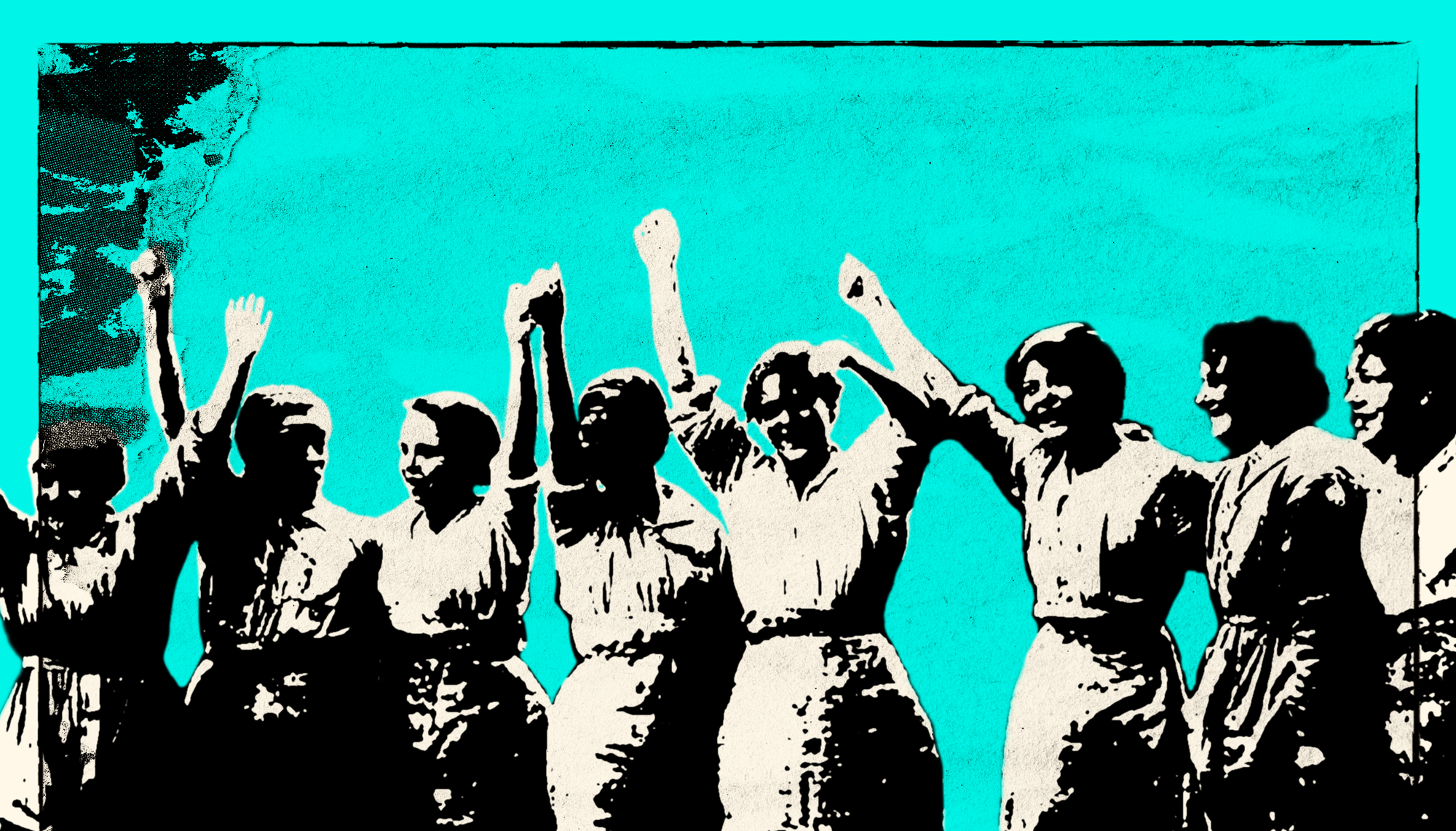
Media Representations of Female Friendships
Women are not primed to see female friendship as beneficial and life sustaining the way we are primed to see relationships with men. Most popular non-fiction books and films depict how frivolous and inconsequential female friendship are as we see women characters gossiping, backstabbing and anxiously competing for male attention.
The Bechdel test/Bechdel-Wallace test is a research tool created to measure the representation of women in film and other media. The test asks whether a media work features at least two female characters who have a conversation about something other than a man. Results for malestream media are unsurprisingly disappointing. As Raymond states,
“The woman who is man-made is primed for hetero-relations. The literature, history, philosophy, and science of patriarchy have reinforced the supposedly mythic and primordial relationship of woman for man. As expressed in Genesis, and henceforth in patriarchal perpetuity, the hetero-relational imperative is one-sided. “Your yearning shall be for your husband, yet he will lord it over you” (Gen. 3:16-17)” (Raymond, 1986, p. 10).
Conversely, men are not expected to exist for women. Furthermore, the bonds between men in books and film are often represented as ironclad and substantial.
-Karen, Women's Studies Online
A Question
Can you think of any strong representations of female friendships in popular media? Scroll down to comment and share your thoughts!
References
Raymond, J. G (1986). A passion for friends: toward a philosophy of female affection. Beacon Press, Boston.
Smiley, C. (2023). Not sacred, not squaws: Indigenous feminism redefined. Spinifex Press.
Stark, C. (2021). Carnival lights. Modern History Press.
Book Access
Access Janice Raymond's A Passion for Friends: Toward a Philosophy of Female Affection online (in digital format) at Open Library by clicking here. You will need to create a free account and sign in to borrow the digital book.
A Passion for Friends: Toward a Philosophy of Female Affection is also available to purchase in multiple formats (print, e-book or pdf) through Spinifex Press or at a book store near you.
Purchase Chris Stark's Carnival Lights here or at a book store near you. Purchase the audio book here.
Cherry Smiley's Not Sacred, Not Squaws: Indigenous Feminism Redefined can be purchased here, in multiple formats here, or at a book store near you.
Other Resources
Sheila Jeffreys and Julia Long discuss Raymond's A Passion for Friends: Toward a Philosophy of Female Affection here or below:
Check out another discussion of Raymond's A Passion for Friends: Toward a Philosophy of Female Affection presented by Kate Phelan of the Feminist Heretics:
About Women's Studies Mini-Courses
Women's Studies Online is here to introduce herstorical feminist theories, actions, concepts, media, and anything else we can think of in bite-sized pieces.
Written collaboratively, WMST's mini-courses aim to shine light on important and useful feminist ideas in an easy-to-understand format.

